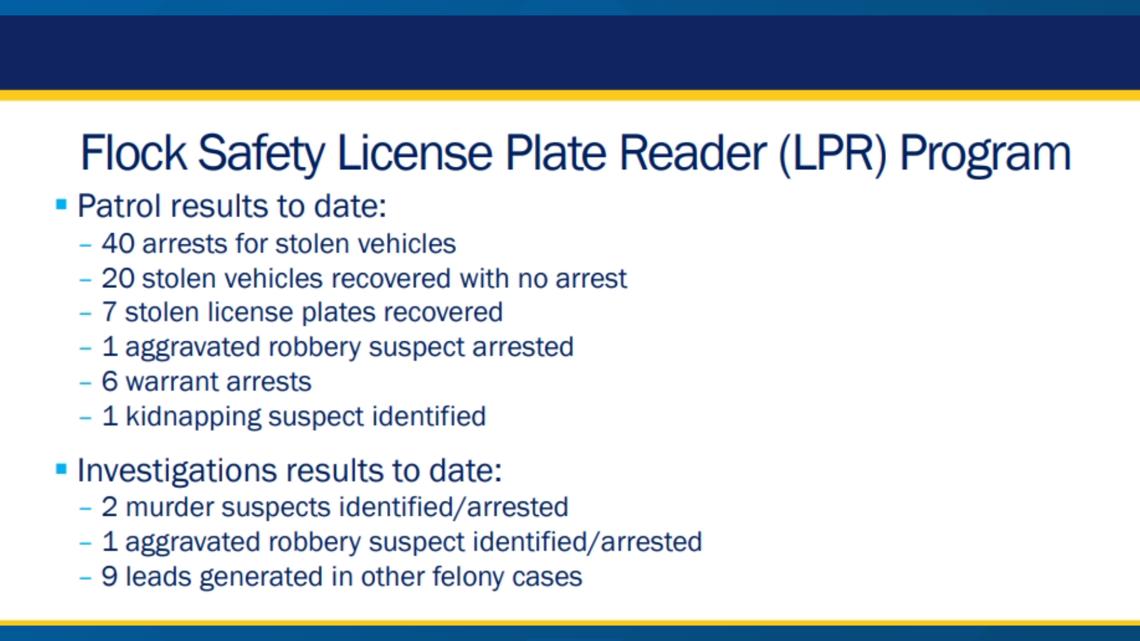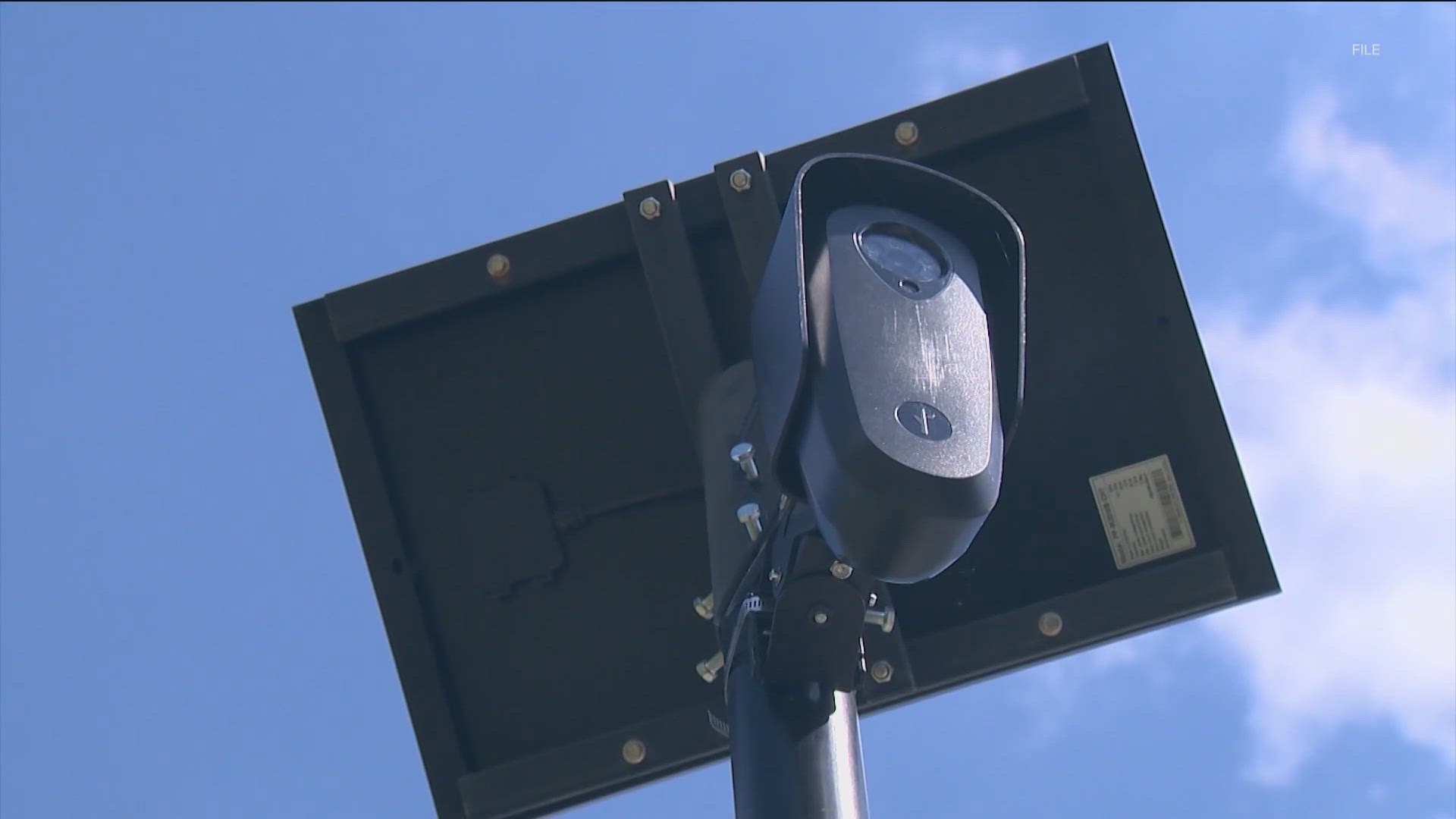AUSTIN, Texas — On Monday, Austin police delivered positive updates on the controversial automated license plate readers installed across the city.
The installation of license plate readers in Austin has been controversial because of privacy, data retention and discrimination concerns.
During Monday's Public Safety meeting, commissioners said they were happy to hear the Austin Police Department's (APD) update.
Since late March, the city has been gradually installing 40 fixed cameras across the city, with the last one going up in August. The department said the new data shows it has helped solve crime.
It includes aiding in the arrest or identification of two murder suspects, the arrest of 40 people for stolen vehicles and helping recover 20 stolen vehicles with no arrests. The technology helped police locate the vehicle of a suspect in a May homicide on Middle Fiskville Road, which in turn enabled them to issue an arrest warrant.


Police said they plan to have all sworn officers trained on using the cameras by the end of this month so they can activate the systems in the patrol vehicles.
"That will give us the ability, per the resolution, to be able to run the software in the car," the APD officer said. "So as you're driving down the road, the camera's officer doesn't have to do anything. The Axon system automatically reads everything and puts it in the database."
In the past, APD said running license plates manually is very time-consuming. Police hope this will help alleviate a little bit of the strain from the staffing shortage. As of Monday, the department still has 355 vacancies for sworn officers, which is nearly 20% of that portion of the force.
While commissioners were pleased to hear the progress, they still had some questions. The group requested more information on how much data was shared with other agencies and the number of false positive stops, meaning how many people were pulled over because the technology misread a license plate. They also want to know the demographics of those people.
The department is expected to present that information at next month's meeting.

